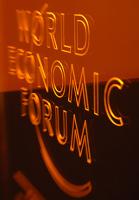In a Report to G8 host and Japanese Prime Minister Yasuo Fukuda, the corporate heavyweights of the World Economic Forum and the World Business Council for Sustainable Development (WBCSD) have set out an aggressive set of recommendations for addressing climate change.
The report, endorsed by CEOs from Alcoa, Royal Dutch Shell and 97 other mutli-nationals, begins with a broad statement of clarity:
While some uncertainties remain – applying a risk management perspective to the available information – we conclude that a reasonable approach is for all leaders of business and government to take action now.
Generally, the leaders call for a paradigm shift to a low-carbon economy by 2050. Specifically, they say things like, “rich countries will have to take the lead and demonstrate strong cuts” (supporting the Kyoto model) and “if all new coal fired electricity generation plants are not operating with CCS (carbon capture and storage) from 2015 to 2020 onward, it will be difficult to realize the target of a 50% reduction in global emissions by 2050.”
In total, there are relatively few concrete recommendations – the CEOs find innumerable ways to call for “flexibility.” But they don’t dodge the main question: Climate change, they say, is both a global challenge and a huge economic opportunity and responsible world leaders, in business and politics, have to act now.
Subscribe to our newsletter
Stay up to date with DeSmog news and alerts






